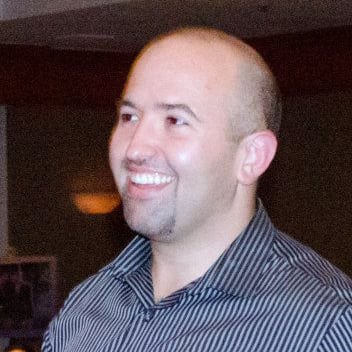The Obstacle Is the Way: The Timeless Art of Turning Trials into Triumph, by Ryan Holiday. New York: Penguin Group, 2014. 201 pp. $15.78 (hardcover).
Perhaps your boss has ignored ideas for increasing sales or reducing costs, or maybe you want to become a professional speaker but have a poor voice or a speech impediment that’s blocking the way, or perhaps you’re having trouble meeting the right girl or guy for romance. Whatever obstacles you face, Ryan Holiday’s The Obstacle Is the Way can provide you with lessons not only for overcoming them, but also for using them as a means to success.
The book’s title is a paraphrase of a maxim from the Stoic philosopher and Roman emperor, Marcus Aurelius, who said, “The impediment to action advances action. What stands in the way becomes the way.”
In practice, this could mean that if your manager ignores your ideas for improving the company, this is the path to starting your own business in which to implement those ideas. It could mean that if you want to become a professional communicator, but a speech impediment hinders your success, this is the way to becoming a successful author. If you are having trouble finding a good romantic partner in all the usual places, this is the road to discovering other places, where more suitable people can be found. And so on. The obstacle is the way.
The book illustrates its points with stories from business, literature, and history. Consider:
Amelia Earhart wanted to be a great aviator. But it was the 1920s, and people still thought that women were frail and weak and didn’t have the stuff. Woman suffrage was not even a decade old.
She couldn’t make her living as a pilot, so she took a job as a social worker. Then one day the phone rang. The man on the line had a pretty offensive proposition, along the lines of: We have someone willing to fund the first female transatlantic flight. Our first choice has already backed out. You won’t get to actually fly the plane, and we’re going to send two men along as chaperones and guess what, we’ll pay them a lot of money and you won’t get anything. Oh, and you very well might die while doing it.
You know what she said to that offer? She said yes.
Because that’s what people who defy the odds do. That’s how people who become great at things—whether it’s flying or blowing through gender stereotypes—do. They start. (p. 71)
In his first chapter, “Live in the Present Moment,” Holiday presents an interesting fact: Dozens of America’s greatest and most enduring companies started during a depression or economic crisis. For example, FedEx opened during the oil crisis of 1973. The owners of these companies
didn’t know whether it would get better or worse, they just knew what was. They had a job they wanted to do, a great idea they believed in or a product they thought they could sell. . . . Yet in our own lives, we aren’t content to deal with things as they happen. We have to dive endlessly into what everything “means,” whether something is “fair” or not . . . and what everyone else is doing. (p. 46)
In the chapter “Channel Your Energy,” Holiday relays the story of Arthur Ashe, a black tennis player in the 1950s. Ashe never argued against a blatantly bad call or any other injustice; instead, he channeled his energy into improving his technique.“His style is best described in the motto he created for himself: ‘Physically loose and mentally tight.’” His unique style infuriated his opponents, who could not defeat it.
In “The Art of Acquiescence,” Holiday tells the story of Thomas Jefferson’s youthful dilemma. Jefferson was contemplative and reserved, and as he entered politics he soon discovered that he was a terrible public speaker. He chose to develop his writing talent, where he found his voice. Thus he was the man whom the greatest speakers of the era selected to write the Declaration of Independence.
You may find some sections of the book particularly applicable to your life. If you are in a dead-end job, and you’re flailing in your efforts to figure out how to reroute your career, the chapter “Recognize Your Power” and its story of Rubin Carter’s nineteen-year incarceration may help you to identify what is in your control and what is not. If you’re running a business and your product or service is not gaining traction, the chapter “Practice Persistence” and its story of General Ulysses S. Grant’s persistent attack on Vicksburg may resonate with you. If you’re dealing with overwhelming sadness or depression, the chapter “The Discipline of the Will” and its story of President Lincoln may light the way.
Many of the recurring characters—Marcus Aurelius, Cato, Seneca, Thomas Jefferson, James Stockdale, Epictetus, Theodore Roosevelt, George Washington—have more in common than that each overcame adversity. Each had studied and practiced philosophy, particularly the tenets of Stoicism. They were not academics but wise men of action. Holiday laments, “Over the centuries . . . this kind of wisdom has been taken from us, co-opted and deliberately obscured by . . . sheltered academics. They deprived us of philosophy’s true use: as an operating system for the difficulties and hardships of life.”
We live in a world where success is possible but not guaranteed; a world where we can achieve our dreams, but only if we direct our thought and effort toward them. Difficulties, roadblocks, obstacles are a part of life, and this book is a great resource for learning how to turn these obstacles into opportunities.
Related:


![[TEST] The Objective Standard](https://test.theobjectivestandard.com/wp-content/uploads/2017/10/logo.png)













